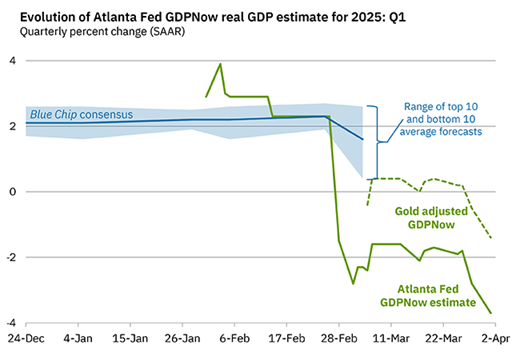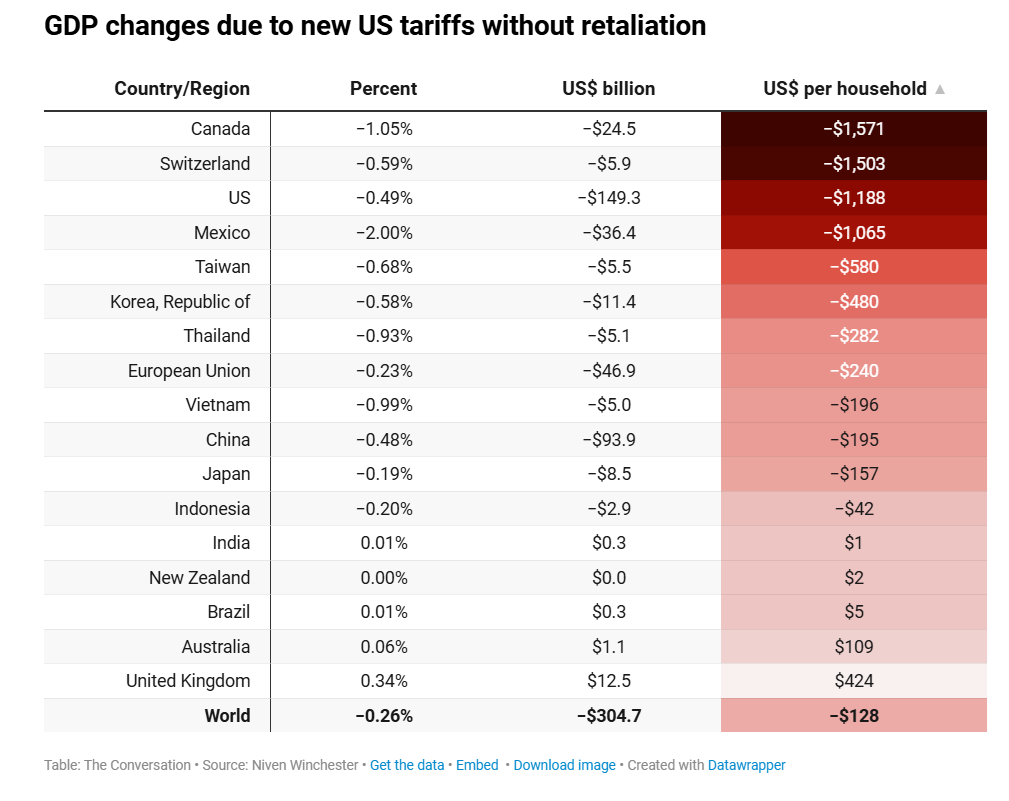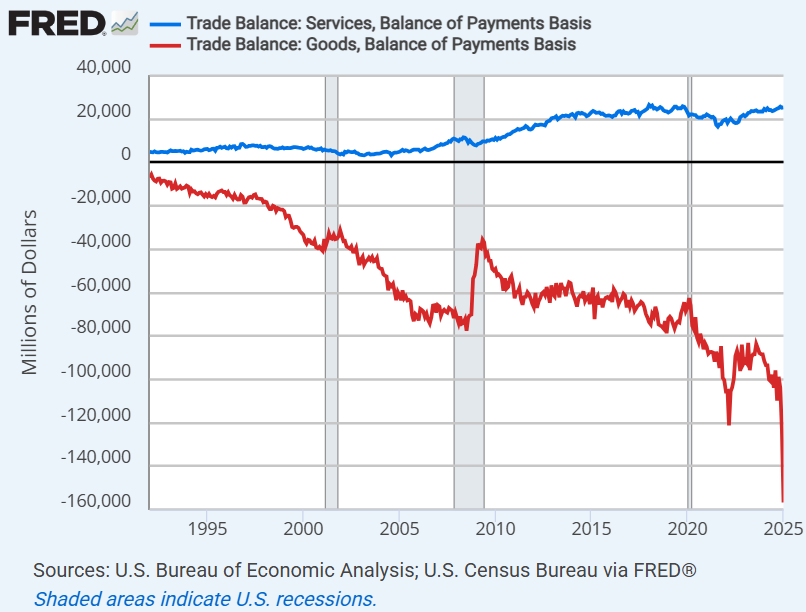The sweeping policy change for US tariffs announced yesterday by President Trump is a game-changer for the global economy. Exactly how trade flows shift, economies pivot, and governments around the world react is unclear, but most forecasts point to slower growth, higher inflation, and a reduction in global trade. Trump, by contrast, says the tariffs will “quickly” usher in a new era of prosperity for the US.
This much is clear: a grand experiment in global trade, with trillions of dollars in economic activity at stake, is underway. As with any policy shift, the results are unknown. It will take several months at a minimum to assess the impact.
President Trump, of course, says the outlook is bright. Speaking yesterday at the White House, where he outlined the new tariff policy, he said:
“For years, hard-working American citizens were forced to sit on the sidelines as other nations got rich and powerful, much of it at our expense. But now it’s our turn to prosper, and in so doing, use trillions and trillions of dollars to reduce our taxes and pay down our national debt, and it’ll all happen very quickly.”
Many analysts disagree, including Steven Blitz, chief US economist at GlobalData TS Lombard. “They just announced a major tax hike, mostly on the corporate side, but as with most corporate taxes, they will be translated into higher prices to the consumer. And you don’t grow an economy with higher taxes,” he says.
The odds of recession are rising as tariffs increase, according to a growing number of estimates. The Atlanta Fed’s
GDPNow
model is currently nowcasting that the US economy has already started contracting in the first quarter (see chart below). But other forecasts offer a brighter profile, at least at the moment. The New York Fed’s model, for example, is still nowcasting a solid 2.9% increase for Q1
GDP
.

But any optimism may soon fade, forecasts Olu Sonola, the head of US Economic Research at Fitch Ratings. “Many countries will likely end up in a recession. You can throw most forecasts out the door if this tariff rate stays on for an extended period of time.”
Professor Niven Winchester, a researcher at MIT’s Program on the Science and Policy of Global Change, lays out a new set of economic forecasts that show significant economic hits across the board, based on modeling that assumes countries will respond with tariff increases – a likely scenario, given the announcements from around the world in the past 24 hours.

Some observers can argue that short-term pain for long-term gain may be worthwhile when assessing the tradeoffs for Trump’s tariffs. But there’s an inherent conflict in the White House’s tariff policy, notes St. Joseph’s University economics professor Nancy Ruth Fox.
If the goal of the policy shift is to raise revenue for the US via imports, that objective is undermined by increasing America’s industrial base. “If I continue buying goods that are produced abroad, that will bring in tariff revenue. But it won’t do anything for American production, not anything, but just at a very simple level,” she explains. Meanwhile, if American consumers switch to buying domestic goods, tariff revenue declines.
Note, too, that for all the talk of the US trade deficit, which drives much of Trump’s thinking on trade policy, America has long enjoyed a trade surplus, and one that’s growing.
Indeed, the US is the leading exporter of services to the world, such as financial services and cloud computing. The US trade surplus in services was nearly $300 billion in 2024.

The question is whether the tariffs threaten US services exports. The answer is almost certainly “yes,” at least to some degree. Given that many service areas represent growth industries, the price tag from tariffs could be quite painful for the US.
Foreign governments may target US services in a tit-for-tat trade war. “The European Union is now equipped with policy tools to extend the range of retaliation against US tariffs to target imports of US services,” advises Filippo Taddei, a managing director of global investment research at Goldman Sachs.
